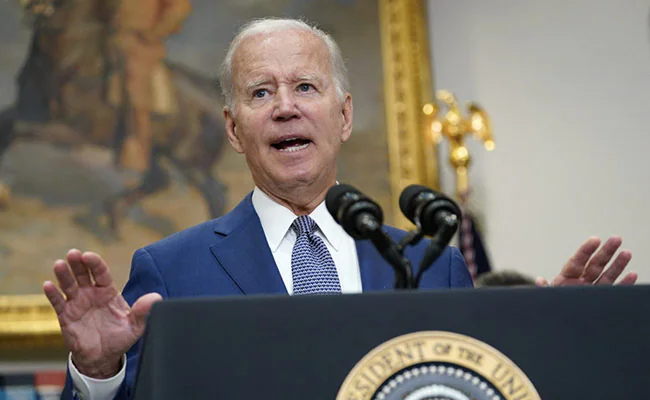A critical part of the truce deal includes the entry of additional aid into Gaza, including much-needed fuel after suffering weeks of a near-total blockade by Israel.
U.S. President Joe Biden’s administration welcomed Qatar’s announcement of a two-day extension to the ceasefire between Hamas and Israel and said it will continue to press for a prolonged truce until all hostages are freed, a White House official said on Monday.
Spokesperson for the National Security Council John F. Kirby said that “less than 10” American hostages are still being held.
Kirby went on to say that the administration hopes for American hostages to be among the 20 women and children set to be released in the next 48 hours, following the truce extension announced by Qatar late Monday.
“We’re going to keep working for an extension,” Kirby said. “Absolutely, that’s what we want. We want to see all the hostages out and this is the best way to get them out.”.
The same Qatari officials instrumental in negotiating the ceasefire on Friday have also played a key role in securing the release of numerous hostages. The truce deal between Hamas and Israel, mediated by Qatar and Egypt, so far saw the release of 117 Palestinians in Israeli prisons, predominantly children, and 69 captives from Hamas in Gaza.
U.S. Secretary of State Antony Blinken is set to return to the region from Monday to Saturday, with scheduled stops in Israel and the West Bank before attending the COP28 climate summit in Dubai, the State Department said on Monday.
Blinken will discuss “continued efforts to secure the release of remaining hostages, protect civilian life during Israel’s operations in Gaza, and accelerate humanitarian assistance to civilians in Gaza. The Secretary will also discuss the principles he outlined in Tokyo on November 8, tangible steps to further the creation of a future Palestinian state, and the need to prevent the conflict from widening,” the statement read.
Kirby stressed the positive outcomes of the ceasefire, noting not only the halt in fighting but also a “surge” in humanitarian assistance to Gaza.
The United Nations said the truce made it possible to deliver much-needed aid – including food, water, and medicine to the largest number of people in Gaza since the war began.
It was also able to deliver 129,000 liters (about 35,000 gallons) of fuel, just over 10% of daily pre-war volume, as well as cooking gas – a first since October 7.
Some international humanitarian organisations expressed on Wednesday that the initial four-day ceasefire falls short of addressing the extensive needs arising from seven weeks of brutal Israeli bombardment, which have left over 1.8 million people in Gaza, nearly 80% of the population, internally displaced.
Qatar-mediated ceasefire in Palestine
On Monday, Qatar announced that Hamas and Israel agreed to a two-day extension of the humanitarian truce in Gaza.
Mediated by Qatar and Egypt, the original four-day truce in Gaza came into effect on Friday morning, providing Palestinians in the besieged enclave with brief moments of calm without Israeli bombardments.
As part of the truce deal, 50 Israeli captives held in Gaza since October 7, will be released. The release of the captives would only come in exchange for the release of around 150 women and children from Israeli prisons.
The first two waves of releases took place on Friday and Saturday, with Hamas releasing 26 Israeli captives and Israel releasing a total of 78 Palestinian captives from its jails.
The third batch on Sunday involved the release of 13 Israelis held in Gaza and 39 Palestinians held in Israeli prisons, in addition to a dual Russian-Israeli citizen and three Thai captives.
The fourth exchange since the initiation of the Gaza truce last week, resulted in the release of three Palestinian women and 30 children from Israeli prisons on Monday.
Since the start of the relentless Israeli genocide in Gaza, the occupation forces have killed more than 20,000 Palestinians, in addition to thousands of others still missing under the rubbles.
The Palestinian death toll, according to a statement by the Gaza-based Government Media Office, includes 6,150 children and 4,000 women and numerous unidentified corpses laying across the streets.
Another critical part of the deal also included the entry of additional aid into Gaza, including much-needed fuel after suffering weeks of a near-total blockade by Israel.
The implementation of the deal on Saturday was delayed by hours after Hamas accused Israel of violating the truce agreement by, as political adviser to Hamas leader Taher Al-Nono tells Al Jazeera, failing to comply with clauses regarding the entry of humanitarian aid trucks into Gaza.
This was then resolved by Qatar and Egypt.
Hamas spokesperson in Beirut Osama Hamdan told Lebanon’s Al Mayadeen TV at the time that aid allowed into Gaza was “less than half of what Israel agreed on.”
While announcing the truce on Thursday, Qatar’s Foreign Ministry Spokesperson Majed Al Ansari said the Gulf state had set up an operations room in Doha to monitor the truce and relay messages to the relevant parties, providing real-time communications with Hamas, Israel and the Committee of the Red Cross (ICRC).







